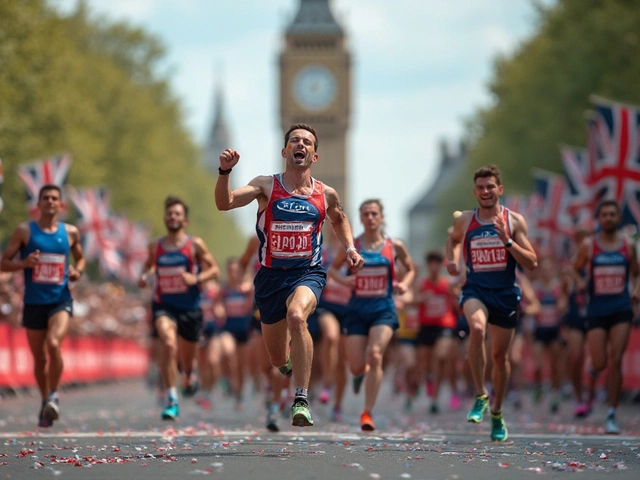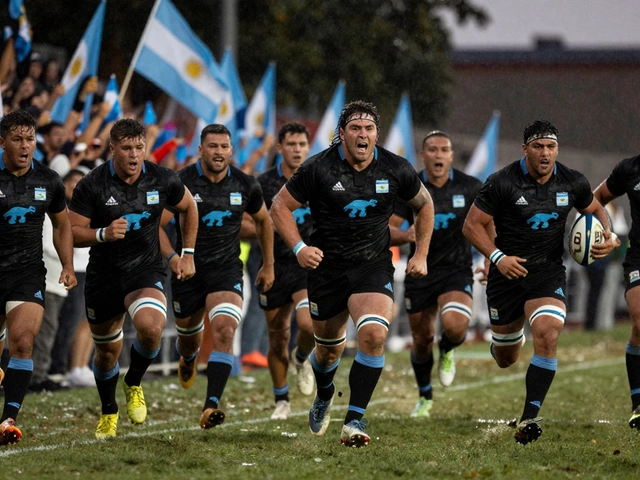Brazil Sports: A Referee’s Guide to the Nation’s Athletic Landscape
When working with Brazil sports, the diverse collection of athletic activities that thrive across Brazil, from street football matches to beach volleyball tournaments. Also known as sports in Brazil, it brings together players, fans, and officials under a shared love of fair competition. This overview will give you the context you need before diving into the pieces below.
One of the biggest drivers behind Brazil sports is football, the country’s almost‑religious game that fills stadiums and neighborhoods alike. Football influences fan culture, media coverage, and the demand for well‑trained referees. Because the sport is played at every level, from youth leagues to professional Serie A, refereeing standards must adapt to rapid game speed and intense crowd energy. Understanding football’s tactics and common fouls helps officials keep matches flowing and safe.
While football dominates headlines, rugby, a sport gaining traction in Brazilian schools and clubs adds a different flavor to the athletic mix. Rugby requires a unique set of officiating skills, such as managing continuous play and spotting illegal tackles. The sport’s growth creates new opportunities for referees to specialize, and local unions are rolling out certification pathways to raise the overall standard.
Another pillar of Brazil’s sporting fabric is athletics, track and field events that spotlight speed, strength, and endurance. Athletics offers a clear set of measurable metrics—times, distances, heights—that make rule enforcement straightforward, yet the pressure on officials spikes during high‑profile meets. Mastering the timing equipment and understanding wind‑assisted rules are essential for accurate calls.
All these activities hinge on solid refereeing, the practice of applying rules impartially to protect players and preserve the spirit of competition. In Brazil, refereeing intersects with cultural expectations, media scrutiny, and sometimes heated crowds. A referee’s ability to communicate clearly, stay composed, and use technology like VAR (for football) or TMO (for rugby) determines the credibility of the match.
Key Areas Covered
Training programs for Brazilian officials now blend theory with on‑field drills, emphasizing scenario‑based learning. Workshops teach how to interpret the Laws of the Game for football, the Rugby Union’s law book, and the World Athletics rule set. Mentorship schemes pair novice referees with seasoned veterans, fostering knowledge transfer and confidence building. These initiatives strengthen the overall quality of officiating across the country.
Local competition calendars are packed from January to December, featuring state championships, national leagues, and international fixtures. Each event creates a demand for qualified officials, and governing bodies publish match assignments well in advance to help referees plan travel and rest. Staying aware of the schedule helps officials maintain peak physical condition and avoid burnout.
Challenges remain. Fan passion can turn into pressure, especially in derby matches where emotions run high. Media analysis of controversial calls often puts referees under a microscope, making continuous education and mental‑strength training crucial. At the same time, technology adoption is accelerating, offering tools like goal‑line systems and wearable GPS for performance tracking. Embracing these advances enhances decision‑making accuracy.
By now you should have a solid picture of how football, rugby, athletics, and refereeing intertwine to shape Brazil sports. Below, you’ll find a curated collection of articles that dig deeper into specific topics—equipment choices, training plans, rule clarifications, and more. Use these resources to sharpen your knowledge and stay ahead of the game as you step onto the field.
Brazil's Top Sport and the Rise of Rugby
While football is undeniably Brazil's most popular sport, rugby has been making significant strides in recent years. Brazil's passion for sports extends beyond the football field, and rugby is starting to gain traction. This article explores the growth of rugby in Brazil, its current status, notable fixtures, and tips for those interested in following or participating in the sport in Brazil.





